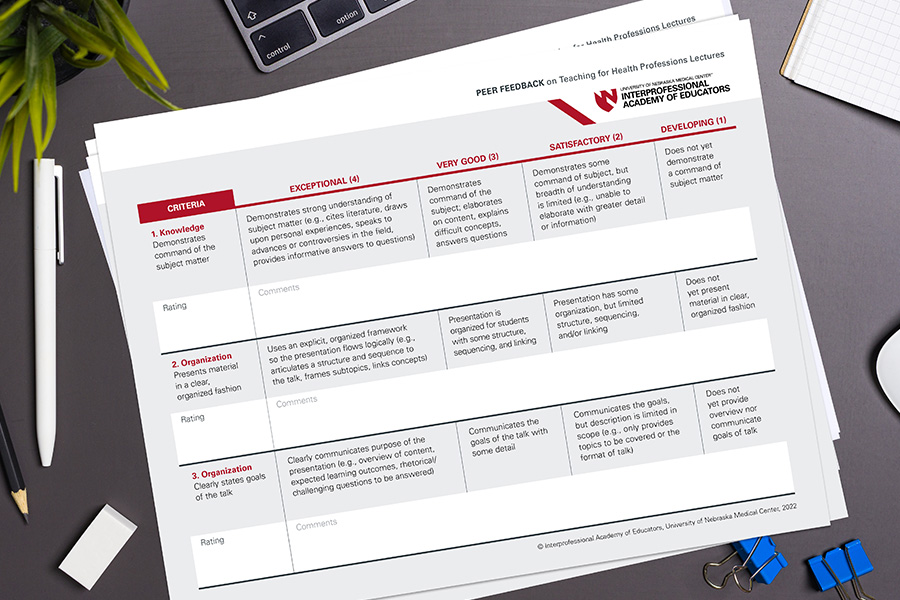Faculty have a new tool to help assess their teaching skills. The Peer Feedback on Teaching Program by the Interprofessional Academy of Educators connects educators with peers who are available to assess online and in-person lectures.
Peer reviewers then use a specially designed rubric to evaluate all aspects of the faculty member’s lecture, including organization and flow, audio/visual materials, presentation style, learner engagement options and overall understanding.
“One of the benefits of the academy is that it connects a community of educators who are willing to provide feedback to help fellow faculty members become better teachers,” said Brian Boerner, MD, director of the Interprofessional Academy of Educators. “The rubric that was created as part of the peer feedback program offers lecturers a more holistic look at their teaching than what they receive from student evaluations. It also presents an opportunity to receive specific, relevant feedback on what is going well and what can be improved.”
Following the observation, faculty and their peer reviewers are encouraged to meet for a debriefing session where further ideas can be shared.
“During our pilot testing of the rubric, previous participants, both lecturers and observers, commented that the true value of the peer feedback process was the conversations stimulated later,” said Michelle Howell, PhD, education researcher of the Interprofessional Academy of Educators. “Some participants even found it helpful to use the rubric when observing an experienced lecturer to help identify important teaching techniques and see how they are effectively implemented.”
Faculty interested in signing up for a peer review of their lectures should email the academy.
Faculty members who already have a peer reviewer in mind can download the rubric from UNMC Creative Commons.
